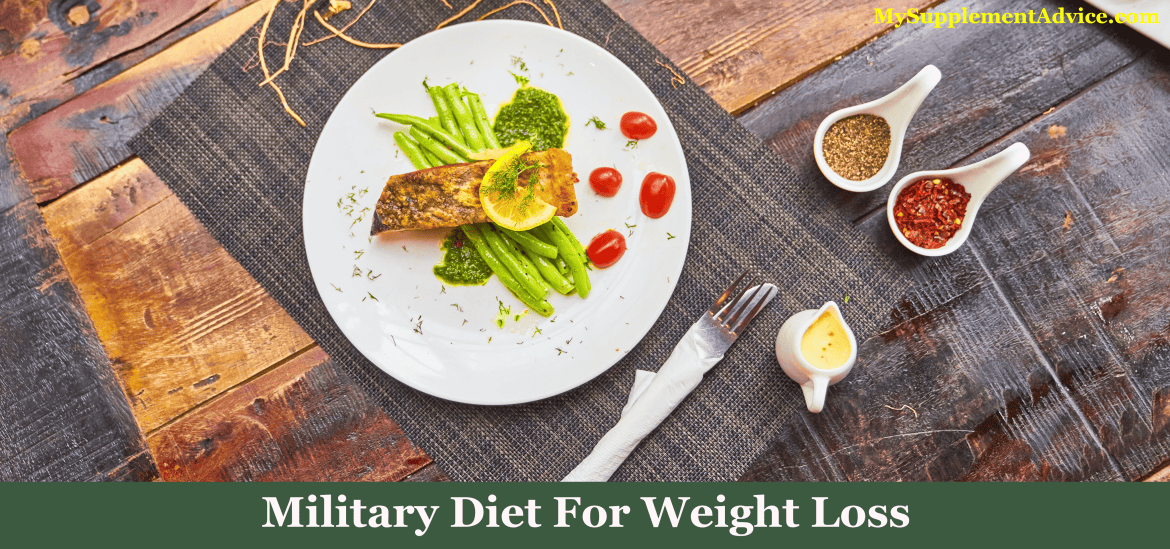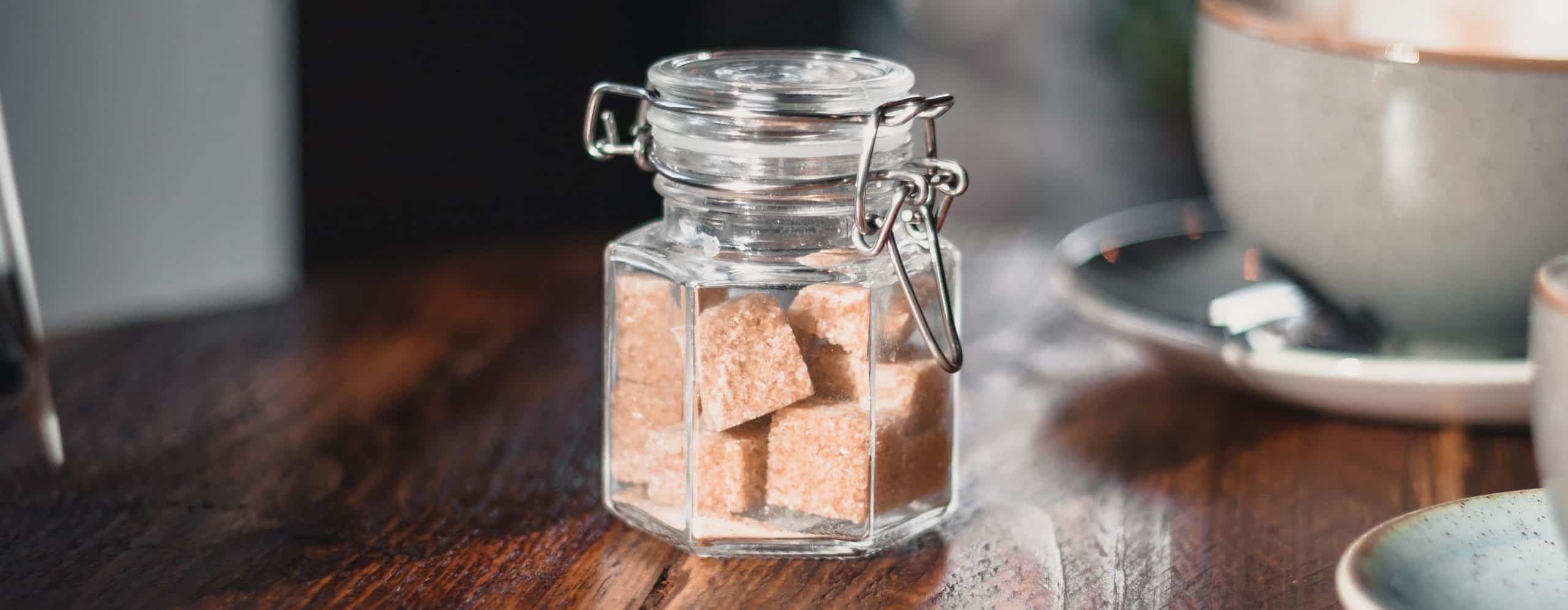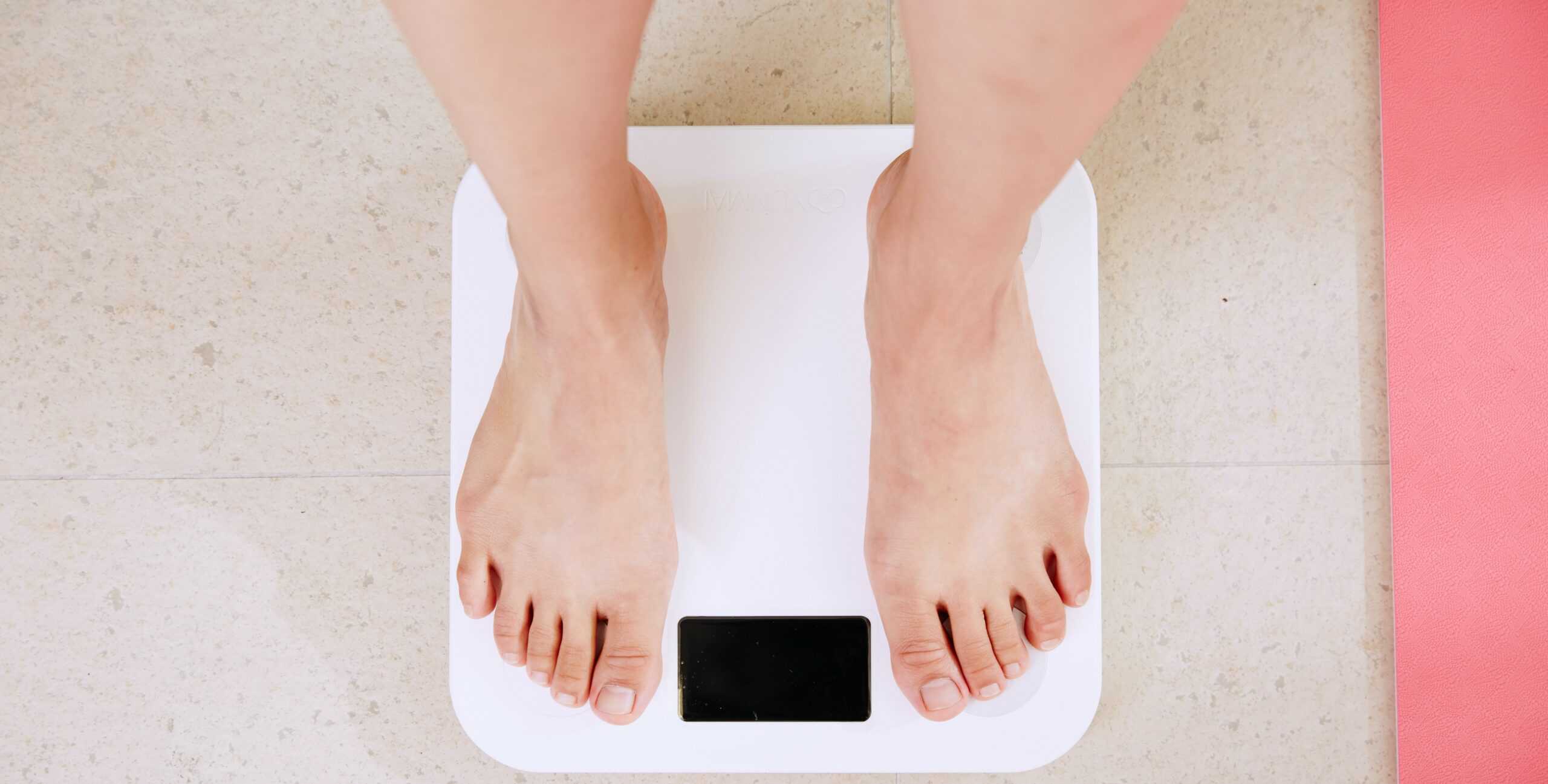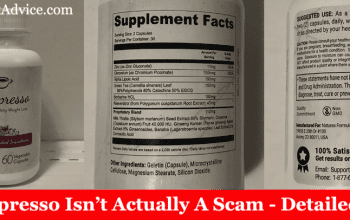
Let's talk about the Military Diet (for weight loss).
It's among one of the better known diets, so you've most likely heard of it.
But there are some questions we need to address:
- Does it work?
- Is it safe?
- What kind of people would benefit most from it?
We're going to see what this diet is all about.
If you're curious to try a new diet, let's see if this one is worth it.
Note: This article is based on my research on the Military diet.
Military Diet For Weight Loss (In A Nutshell)
The Military diet is quite popular on the Internet, due to claims of helping people lose lots of weight.
But is this benefit worth it? It also comes with some downsides:
- dangerously low amount of daily calories
- limited amount of allowed meals
- no access to enough vitamins
- lack of scientific evidence
- unsustainable in the long term
Now – you should know that this diet definitely has the potential to help with weight loss…
Although it does so in a rather extreme way.
That's because it imposes a rather low amount of daily calories on your diet.
This is definitely not healthy in the long run, mind you.
Besides, this is just about the only benefit that we can be sure of when it comes to Military diet…
And even this one single benefit is actually rather risky.
Not to mention that it restricts your diet quite a bit.
Sure, you mainly have to follow this regimen for 3 days every week, yet you have access to a limited amount of foods.
To be fair, there is no way to know if all these limitations are justified (due to a lack of scientific data).
Not to mention that you run the risk of vitamin deficiencies and potential digestive issues.
Overall, there is no evidence that suggests the Military diet is an appropriate method of losing weight.
If you ask me, I would suggest looking for an alternative that is grounded in science.
#1 – What is Military Diet All About?
The Military diet has intermittent fasting at its base.
Right off the bat, if that does not sound like something you're up for…
Feel free to look for a diet with a more consistent structure.
Regardless, the Military diet is all about restricting calorie intake for 3 days of the week.
For the remaining 4 days, you return to your normal eating habits.
Essentially, this diet is high in protein and low in carbs, fat, and calories.
You are also required to severely limit calorie intake for the 3 days:
- 1,400 calories for day 1
- 1,200 calories for day 2
- 1,100 calories for day 3
In spite of the name, this diet has nothing to do with how people in the military actually eat.
It's just called by this name on social media because it's supposed to help you lose a lot of weight very quickly.
However, it doesn't look like this is sustainable long term.
Usually, dietary regimens that are based on intermittent fasting don't do a good job at improving your relationship with food.
But let's get to more details and see what exactly makes the military diet seem promising, if anything.
#2 – How Military Diet Works
As previously mentioned, this diet splits your week into 2 sections.
For the 3 days of limited calories, you are to follow the meal plan put out by the official website [1].
You're looking at 3 main meals per day, but with no snacks in-between.
During these days, you're averaging around 1,100 – 1,400 calories per day.
This makes the military diet a low-calorie diet by definition [2].
For the record, it's important to know that this is below what is recommended by the 2020-2025 United States Dietary Guidelines [3].
These guidelines state that an adult aged between 18-60 should consume the following amounts of calorie:
- 1,600-1,800 for women
- 2,200-2,400 for men
According to this, the military diet imposes an inadequate amount of calories that could prove dangerous for your health.
If you are still tempted, it is highly recommended that you get in touch with your doctor beforehand.
For the rest of the week, you are supposed to eat normally.
However, obviously you're not going to see results if you were to only eat fast food outside of those 3 days.
In other words, you have to try and abide by a balanced diet.
This would include the following:
- whole grains
- legumes
- nuts
- lean proteins
- fresh fruits
- fresh vegetables
As for calories, you're looking at an average of 2,000 calories per day.
However, that obviously depends on your age, sex, and how active you are.
If you want to stretch the calorie deficit throughout the entire week, the military diet offers an additional meal plan.
This one is not so restrictive, putting you at about 1,500 calories per day.
#3 – Military Diet & Research
Some research suggests that very-low-calorie diets are suitable for facilitating weight loss short term [4].
Keep in mind that very-low-calorie diets let you consume up to 800 calories per day.
Military diet allows you to consume a little more, although not by much.
Naturally, it's very difficult to assess how much weight the average person would be able to lose on such a restrictive diet.
Every body is different, so it's difficult to reach a broad level of generalization.
Now – the diet claims you can lose up to 10 pounds per week and around 30 pounds per month.
It's even said that you can achieve such results without having to let go of foods like ice cream or hot dogs.
Essentially, the Military diet proposes that combining certain foods can boost the metabolism.
In turn, the fat-burning process is also enhanced.
Still – keep in mind that there are no studies that would support the efficacy of the Military diet.
So there is no evidence that suggests this diet is based on scientific grounds.
However, remember that diets that promise extreme weight loss often end up in weight gain once the diet stops [5].
#4 – Military Diet – Benefits
Given that there are no research articles that are specifically about the Military diet…
It's difficult to pin down the promising aspects of this diet.
Thus, we will be looking at the only aspect we can be sure of.
1. Weight Loss
The one thing that can be safely concluded is that the Military diet certainly has the potential of helping you lose weight.
After all, it does work by setting a calorie deficit.
This surely is a proven tactic of approaching weight loss [6].
In this way, it sounds quite believable that it can help you shed extra pounds.
If you try this diet and it proves effective, make sure you properly transition back to a less restrictive dietary regimen.
That's because going from such a strict diet back to eating whatever can come as a shock to your body.
It might even end up erasing all the progress you made up to that point.
Still – by no means does the Military diet bring a healthy way of losing weight.
Intermittent fasting, while effective at times, is far from an ideal method.
Plus, due to the lack of scientific evidence, we cannot fully trust the 10-pound claim, neither the 30-pound one.
Essentially, how much weight you may lose and the rate at which it may happen completely depends on your body.
Honestly, the fact that the Military diet is so strict truly makes it more risky than appealing.
But let's explore the other side of the coin in the following section.
#5 – Military Diet – Downsides
There is quite a bit of uncertainty surrounding this diet.
Naturally, this does not inspire much trust.
Let's see what you should watch out for if you plan to give this diet a try.
1. Unsustainable Weight Loss
Surprisingly enough, even the one advantage of this diet can be turned on its head.
This was briefly mentioned beforehand, but keep in mind that healthy weight loss takes time.
If you're looking for weight loss that won't come as a shock to your body…
It is recommended that you stick to 1-2 pounds per week [7].
Not to mention that any diet that promises extreme amounts of weight loss usually focuses on water weight.
So it's unlikely that you will be shedding actual fat, especially in the beginning.
In other words, you cannot have complete faith in the weight loss potential of the Military Diet.
2. Vitamin Deficiencies
Like many other highly restrictive diets, the Military diet is also not very indulging.
Due to how few types of foods you're allowed to eat, it's very likely to lead to some mineral deficiencies.
A healthy diet is more inclusive so that you have wider access to all sorts of nutrients that your body needs.
Needless to say, something like the Military diet might pose some problems in this regard.
Be careful, as some vitamin deficiencies can have fairly serious consequences.
Especially if you don't address them soon enough.
3. Constipation
Given its guidelines, the Military diet is quite low in fiber.
This will affect your digestion to the point of having to deal with constipation.
Nonetheless, fiber is essential for maintaining your bowel movements regular.
Generally, fiber is found in plant foods such as oats and lettuce.
Being on a low-fiber diet may result in other digestive problems in the long run [8].
4. Risk of Overeating
Once again, many restrictive diets run the risk of putting you through this.
If you are sticking to a regime that is very low on calories…
Your brain might increase your drive for food whenever you are finally having a meal.
Essentially, it will be much more difficult to resist food.
This makes it easier for you to go over the recommended servings, which is rather problematic.
The Military diet is not very forgiving when it comes to slip-ups, so this is fairly serious.
Just be aware of this potential consequence – you might need a lot of self-discipline to overcome this.
#6 – What You Can Eat On The Military Diet
The Military Diet is a little different from others of its kind.
That's because it has a predetermined plan that you have to follow.
This may make it easier for you, or rather more difficult.
Regardless, feel free to check the official website for the full meal plan [1].
They also provide you with a shopping list, so you know what to look for next time you go grocery shopping.
But let's take a more in-depth look at what you're allowed to eat:
- fruits – bananas & apples only
- whole wheat bread
- eggs
- peanut butter (or almond butter)
- meat
- non-starchy vegetables
- saltine crackers
- hot dogs
- cottage cheese
- cheddar cheese
- vanilla ice cream
- caffeinated coffee and tea
As you can see, the selection is quite limited.
Luckily, you're only supposed to stick to this list for 3 days per week.
Still, you might get tired of eating the same foods each week.
Make sure to switch them around to prevent yourself from growing bored too soon.
Regardless – the Military diet is very much not keen on freedom, as you can observe.
Now you see where the risk of vitamin deficiencies comes from, surely.
#7 – Foods To Eliminate On The Military Diet
Given how unfriendly the list of allowed foods is…
Surely you're expecting to have to let go of a lot when it comes to Military diet, right?
Let's see a comprehensive list:
- alcohol
- sweeteners (sugar in general)
- milk
- no cream in coffee
Additionally, you are also advised to let go of processed foods as much as you can.
As you can see, the above list is not that long, that's true.
However, what might really challenge you is that you have a fixed list of foods you're allowed to consume.
Not to mention the risk of overeating and eventual cravings.
Regardless – if you're dealing with certain dietary restrictions (due to allergies, for example)…
The Military diet allows for substitutions.
Just head over to the official website to learn more about that.
#8 – Military Diet & Weight Loss
We've briefly addressed this topic already, but let's sum it up, shall we?
Now – we already assessed that there is no concrete evidence that proves the efficacy of the Military diet.
Given this, I cannot recommend it to you in good faith.
Not to mention that the only reason why this diet might result in weight loss is because it has calorie deficit.
However, don't celebrate yet – as the amount of daily calories is dangerously low.
Besides, sticking to such a low-calorie diet may cause you to gain all the weight back once you're done.
Nonetheless, this is by no means a healthy way to lose weight.
Plus, it's gonna be a while until you lose anything but some water weight.
In the end, it seems like the prospect of weight loss is the sole attraction of this diet.
But I bring up all the shortcomings to show you that it isn't worth it.
There are other diets that are much more balanced than this one, trust me.
My Verdict – Is The Military Diet Worth It?
Short answer: Definitely not.
It's too much hassle for results that are not even guaranteed to be sustainable:
- weight loss potential (due to calorie deficit)
- daily calorie intake is dangerously low
- quite restrictive
- can lead to digestive issues (because of the lack of fiber)
- potential vitamin deficiencies
- lack of scientific evidence
- risk of overeating
Given the lack of research on this diet, we cannot even know if the restrictions imposed are justified.
Overall, the amount of confusion that surrounds the Military diet is not worth putting up with.
Sure, you might eventually lose weight purely due to the calorie deficit.
But it isn't worth it, if you ask me.
There are simply too many risks and variables.
I think you're better off looking for a diet that is more balanced.
After all, remember that sustainable weight loss does not happen in the span of a single week.
Healthy weight loss is preferable, although it takes a lot more patience.
References:
1 – https://themilitarydiet.com/military-diet-plan/
2 – https://www.ncbi.nlm.nih.gov/-pmc/-PMC6163457/
3 – https://www.dietaryguidelines.gov/-Dietary-Guidelines-for-Americans-2020-2025.pdf
4 – https://www.ncbi.nlm.nih.gov/-pmc/-PMC3862452/
5 – https://www.ncbi.nlm.nih.gov/-pmc/-PMC6366252/
6 – https://pubmed.ncbi.nlm.nih.gov/-25926512/
7 – https://www.cdc.gov/healthyweight/-losing_weight/index.html











